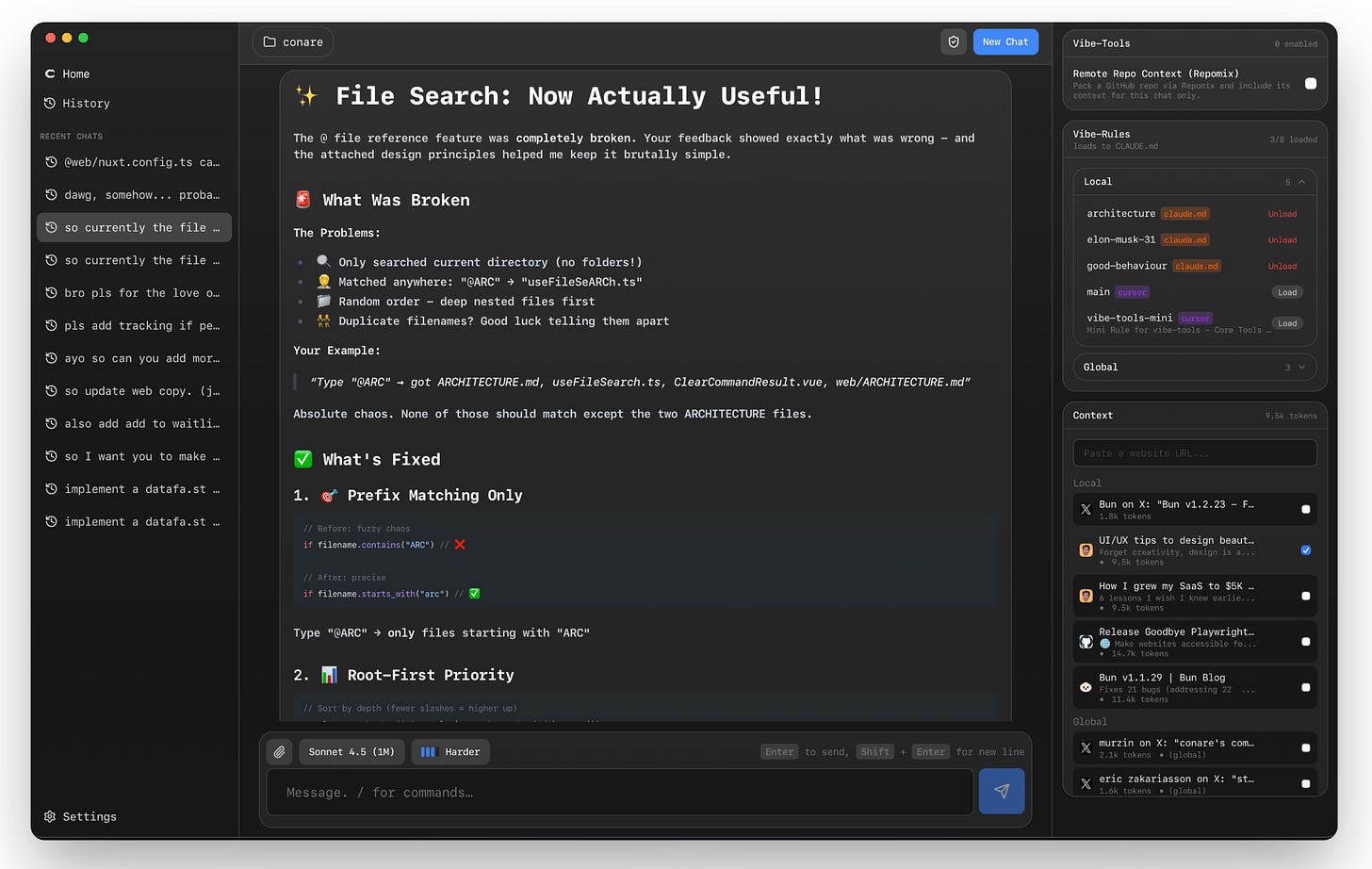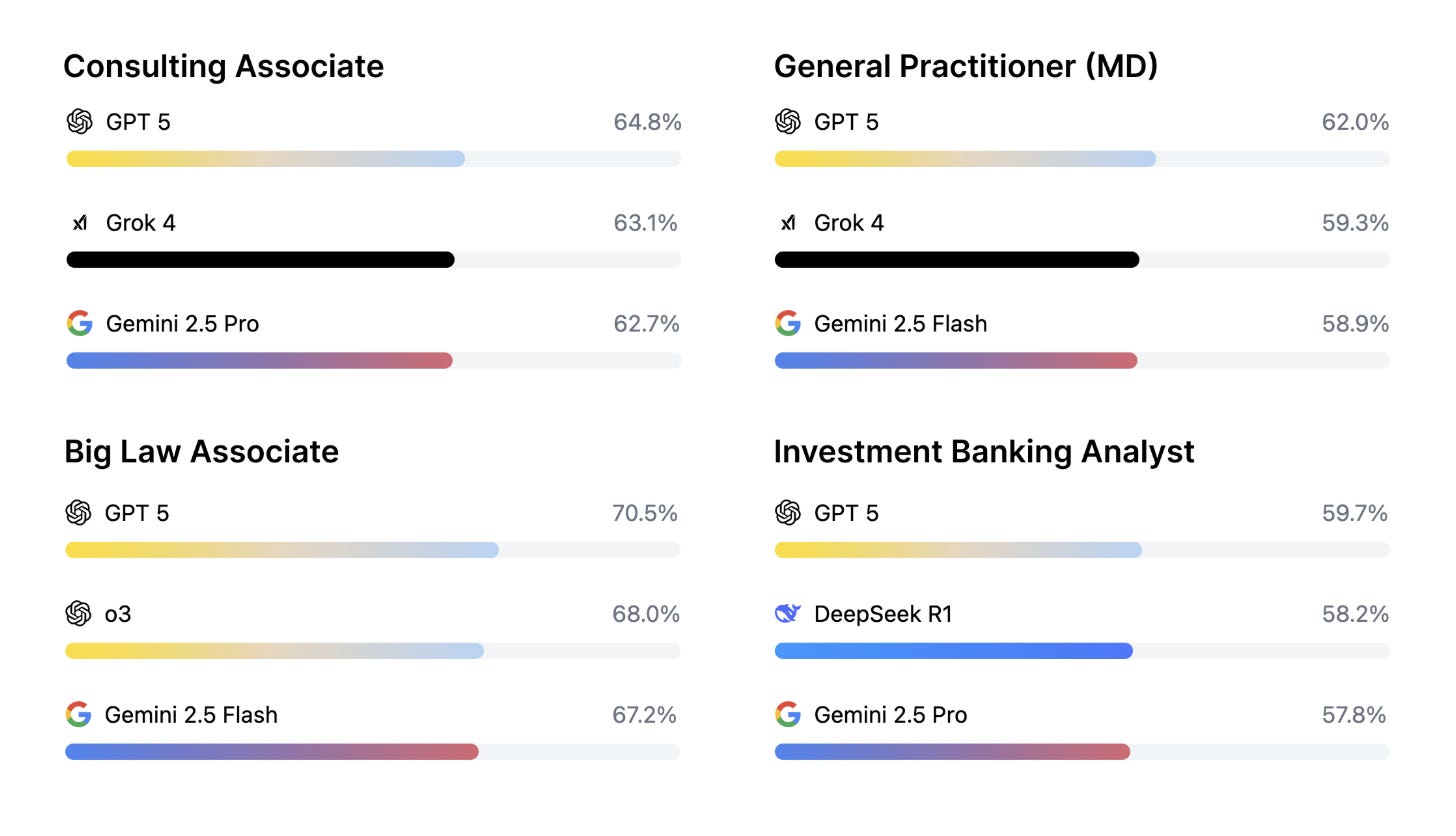Thoughts from OpenAI DevDay
When everyone becomes a developer
The newsletter for the technically curious. Updates, tool reviews, and lay of the land from an exited founder turned investor and forever tinkerer.
Hey folks, I’ve just been at OpenAI Dev Day.
The event itself was phenomenal, great organisation. In terms of releases, there were two big themes:
Add your apps to ChatGPT
Add ChatGPT to your apps
Apps in ChatGPT, I think we all saw that coming. It renders a familiar UI based on the application you’re using (say, Figma) and syncs with your data using MCP. It feels native to ChatGPT vs. OpenAI’s previous attempts to make an app store (hello, Plugins & GPT Store).
OpenAI promises discovery and monetisation for building on top of ChatGPT. But there’s a question about the future, will devs focus more on bundling components with MCP, so that AI can stitch together into an interface inside chat tools like ChatGPT or Claude, or building a website/app to be consumed by a human, which is very different? To me, it mimics how mobile apps became something you need to build now, but the web didn’t go away.
Then we have AgentKit - A suite of tools to add a chat UI to your apps. There’s a visual workflow builder (like n8n or Zapier) called Agent Builder. And a Widget Builder with ready-to-use components tailor-made for chat UIs. It’s for developer-adjacent roles, like a PM who can build a chatbot in a no-code UI and just hand the workflow_id to a dev or AI-generated code.
It’s not quite automating away repeated tasks (like Zapier); instead, it’s focusing on creating a chat-based experience on top of your product. But OpenAI can easily turn it into the former; they’re swallowing up the actual space in between any startups right now building anything with AI.
The OpenAI team typically say the same thing: “Well, the models are taking us wherever we’re going” and “models will keep getting better.” But that doesn’t mean ChatGPT needs a workflow builder. Fees like they’re capitalising on every opportunity enabled by the models improving. Also, they’re training the models to get better at certain things, like writing code, so it’s not uninformed.
Of course, there were the other updates we expected:
Sora 2 is now in the API. It’s cheaper than Veo 3’s API with better quality/controls.
Codex is generally available with a new SDK and Slack integration.
GPT-5 Pro is available in the API.
Cheaper, smaller models for voice-to-voice chat (
gpt-realtime-mini) and image generation (gpt-image-1-mini).
I saw some familiar faces: Swyx, Alessio from Latent Space, Alex from Thursday AI, Rowan from The Rundown, Greg from ARC-AGI, Dan Shipper. And Simon Willison sat next to me in a workshop, just coding away. He was like, “Oh, they, they’ve launched this GPT Image Mini. It’s very cheap, they didn’t even mention it in the keynote,” but he just discovered it and then did his pelican test for GPT-5-Pro straight away. That was really cool, actually.
I also spoke to Greg Brockman, asking him, “Why is there no new thinking around GitHub and the whole development stack? I’m new to development, but writing code is no longer the hard part,” and he agreed with me. If you’re building in that space, reach out—I want to invest.
Also, come meet me IRL on 8th October in SF and talk about Droids, ask the team questions, plus more free tokens :)
Nano-banana is generally available in the Gemini API. The stable version comes with support for 10 different aspect ratios and image-only output. Google DeepMind also shared the results of their new agent, CodeMender (nice name). It’s built on top of Gemini Deep Think and can automatically patch critical software vulnerabilities.
OpenAI built GPT for the masses. Brightwave built AI for professionals: full editability, traceability down to the sentence level, and 20x the compute. Their custom subagents can ingest 2000+ documents with zero loss of fidelity - try doing that with a consumer LLM. → Your 7-day trial is waiting.*
🌐 What I’m consuming
Which apps are startups spending their AI budget on (beyond GPUs)? The top 50 contains 4 vibe-coding and 10 creative AI tools, hinting they are here to stay.
Three paths for how AI changes scientific discovery.
Vibe Check by Every - OpenAI DevDay 2025.
If you’re looking for a tactical playbook on startup investing (did you know you can write $1k checks?), my friends at Angel Squad run a weekly newsletter called Small Bets. It’s one of the top investor newsletters in the space with 30k+ subscribers. If you’re interested in AI, you’ll enjoy it. Check it out – subscribe here.*
⚙️ Tools and demos
AssemblyAI – Fast, accurate, scalable speech-to-text for the next generation of Voice AI apps.*
Instant.bot - Group chat with your own AI in Discord or a browser.
Gaia by Lindy - Low-latency phone agent with memory that you can integrate with other tools, like a CRM.
Perplexity’s AI browser Comet is now available to everyone in the world
Reve is a new startup training image models from scratch and making a product around them. Their latest image editing model is #4 on the image edit arena, but using it within their product experience feels like what Photoshop with AI should be.
Conare - Visual UI to manage context for Claude Code.
🥣 Dev dish
Maivi - Get a local voice-to-text model running on your device.
Petri - Agent to audit model behaviours like sycophancy and deception. (Anthropic’s blog)
Jules Tools - Lightweight CLI to manage your tasks/trigger new tasks with Google Jules.
Scribe by GoodFire AI - Give Claude Code, Codex, and Gemini CLI agents access to Jupyter servers + notebooks. (Their goal here is enabling experimentation for AI safety research—more in their blog)
📊 Charts I came across this week
Mercor AI, a hiring company that outsources data labelling for AI labs, released a new benchmark: AI Productivity Index (APEX). All the top models have roughly similar scores, except Opus 4.1, which scores way low here (vs. topping OpenAI’s similar GDPval).
🍦 Afters
Agentic Memory & Context Engineering Hackathon, Oct. 11 — Push the boundaries of what you can build with MongoDB’s Atlas Vector Search and Voyage AI.*
Vercel is hosting a one-day AI conference on 23rd Oct in SF.
Medal, a company that allows you to capture and share video game clips, was getting $500M from OpenAI for their data. The deal fell through, and Medal is now building a research lab of its own.
Supermemory raised $3M to build the best memory for LLMs and agents. (I’m an investor)
OpenAI is partnering with AMD to deploy 6 GW of AMD GPUs over the next few years (and buy up to 10% of AMD stock).
That’s it for today. Feel free to comment and share your thoughts. 👋
Read about me and ben’s bites
📷 thumbnail creds: @keshavatearth,




Great insights, as always!